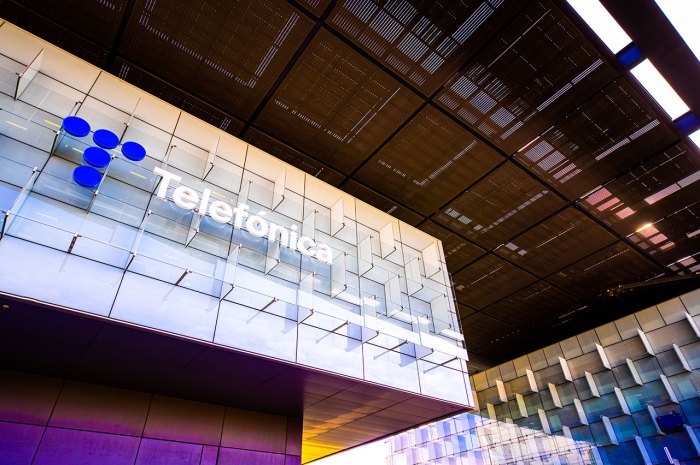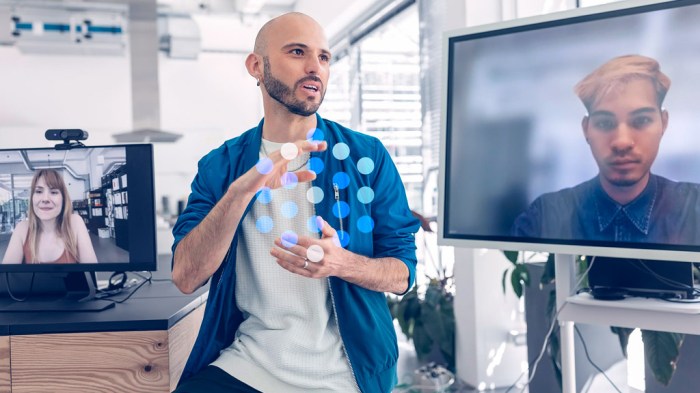Telefónica’s strategy remains deeply rooted in the overall mission of “making the world more human by connecting people’s lives.” A century has passed since it was founded and Telefonica continues to adapt the business strategy, aiming at strengthening its leadership positioning in a challenging environment.
Telefonica: a hundred years of successful transformation
2024 marked an important milestone in Telefónica’s history. In April, the Company celebrated the 100th anniversary of its incorporation in Spain, in 1924, with the mission of deploying a national telecommunications network, automating local telephony in large cities and laying cables underground, and connecting the entire country through a long-distance network. Over this time, Telefónica has grown and transformed the business, leading to current positioning:

- Telefonica’s presence and relevant market shares reaches prominent countries across Europe and Latin America (Core markets include Spain, Germany, United Kingdom, and Brazil.)
- In those markets, Telefonica has built a relationship with clients based upon leading commercial brands, relevant to each client segment (main brands include Movistar, Vivo, O2 and VMO2 for consumer segments and Telefonica Empresas or Telefonica Tech, aimed at the corporate segment.)
- Having accelerated the rollout of new technologies, Telefonica now operates next-generation Telecommunications networks, based on Fibre and 5G. Besides a state-of-the-art access network, Telefonica is at the forefront of the digitalization of its operations, which include advanced solutions based on Artificial Intelligence.
- These modern networks allow Telefonica to offer a range of innovative services to clients based on advanced connectivity, as well as new digital services beyond connectivity, which increases relevance and customer satisfaction across all segments.
Vision: the future of Telecoms
Telefonica, and the telecom sector, are facing a new stage in transformation, driven by deep and disruptive innovation in key technologies. We are effectively entering a new era, at the intersection of:
- Telecommunications, based on the new capabilities from next-generation networks that are enabling new attributes for a differentiated connectivity (throughput, privacy, latency, security…)
- Distributed computing, starting from traditional Cloud services towards new architectures, placing resources closer to our customers for critical applications (Edge.)
- Pervasive deployment of Artificial Intelligence-based agents across the infrastructure, enabling a new wave of automation, both for customer-facing and back-office processes.
- Evolution of the Internet towards decentralized models (Web3) and featuring new client interfaces (AR/VR).

Telecom operators remain strategic for this digital future, key to the societies in which they operate. Connectivity is a must, and Telcos need to ensure it is provided in a manner consistent with the requirements of cutting-edge, advanced use cases (speed, latency, personalization…), while coping with the exponential growth in traffic entails doubling-up the effort in transformation.
Strategy, Telefónica has built solid foundations for the future:
In a highly dynamic macroeconomic and industrial landscape, Telefónica has developed a solid positioning based on:
- Telefonica’s relevance to its growing customer base, reflected on improved satisfaction and customer loyalty indicators.
- A world-class positioning in infrastructure, based on fibre and 5G, on Telefonica’s core markets.
- An experienced management team, with proven know-how in the sector.
Looking ahead, Telefónica remains focused on creating value for its shareholders and other stakeholders through rigorous strategic analysis and the effective execution of key initiatives:
- Focus on its core markets: A customer-centric approach that enhances satisfaction and loyalty metrics, leveraging leading brands and tailored value propositions for each market segment.
- Improved operational efficiency: A commitment to efficiency, leveraging technology for process optimisation. Past investments made in fibre and 5G networks enable a significant reduction in capital expenditure (CapEx) needs, directly impacting free cash flow (FCF).
- Efficient capital allocation: Financial discipline and strict criteria for capital allocation, prioritising investments in growth areas with high potential for returns.
- Acceleration of growth opportunities: Capitalising on opportunities to drive further growth, including the development of business lines.
Mission and sustainability strategy (main targets):
Telefónica’s mission places people at the centre of everything it does. It wants to be a company in which customers, employees, suppliers, shareholders, and society in general can trust. Its mission consists of two key elements:
- Making the world more human: corporate ethics are at the heart of everything it does. The Company put technology at the service of people and drives responsible digitalisation that accelerates the green transition. It takes into account the expectations and needs of different interest groups to build relationships based on trust.
- Connecting people’s lives: this means that it aims to digitalise society as a whole, leaving no one behind, and reduce the digital divide in terms of access, affordability, accessibility and training in digital skills. It also drives the Company to innovate, ensuring that it offers secure products and services that add value, contribute to improving people’s lives and leads us to leverage digital solutions.
Committed to the mission, Telefónica integrates the main aspects of sustainability into its strategy, designing action plans to tackle the impacts, risks and opportunities arising from the double materiality analysis. These ESG commitments are reflected in the 2024-26 Responsible Business Plan:
Transform customer relationship
We are working on developing a new global customer responsibility policy aimed at building unique experiences based on trust.
In addition, the Company wants to expand its range of products and services by capitalising on the opportunities offered by an ESG perspective. This approach includes promoting Eco Smart products, encouraging responsible design practices and boosting digital inclusion through the development of accessible solutions with a positive social impact, among other measures. Through these initiatives, Telefónica seeks not only to set itself apart in the marketplace, but to also build stronger, more sustainable and longer-lasting relationships with its customers.

Transform the operating model
In order to generate a higher return on its investments and improve its resilience, the Group is committed to decarbonising its operations and reducing energy consumption by prioritising renewable sources and energy efficiency practices.
It also seeks to promote the circularity of its processes in order to explore new business models (reuse of customer equipment or mobile devices) and generate efficiencies. In addition, the Company is working to incorporate sustainability criteria into its financing, which is mainly reflected in the contracting of new financial instruments linked to ESG targets.

Transform and commit to long-term value
In order for sustainability to be a driving force for Telefónica’s value creation, it undertakes management commitments that enable it, among other things, to position itself as a leader according to various ESG benchmark ratings. To achieve this, the Company emphasises the importance of promoting excellence in governance and transparency in information, underpinned by a strong ESG culture.
Telefónica is considering different solutions and projects, among which is the implementation of wide-ranging due diligence processes that promote sustainable management of its entire value chain, as well as its focus on human talent through practices that prioritise employee well-being, improve their skills and promote diversity.
